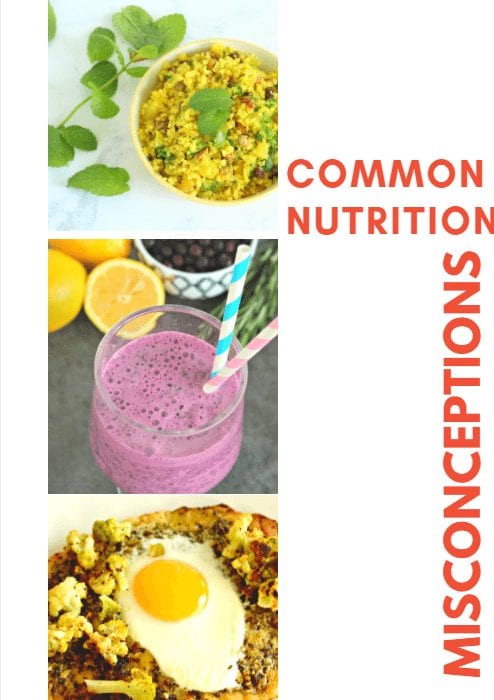
By: Courtney Rayppy (Dietetic Student)
College is difficult in and of itself but when you tackle on all these different opinions and studies about how to eat a well-balanced healthy diet it becomes even more challenging. College students tend to believe things that they see on social media or accept diets being promoted by celebrities, famous athletes, and healthy living bloggers. Being a nutrition student, I get a LOT of questions about nutritional science and my opinions about a certain popular diet trend or different foods. While I do extensive research to make sure I am up to date on my nutrition information, I will always advise others to look for as much evidence supporting the claim as they can; if they are unsure what constitutes as enough evidence, usually I refer them to articles or sources published by professionals credentialed in the field of nutrition. Now I will address some of those common misconceptions of nutrition topics I am asked about most frequently.
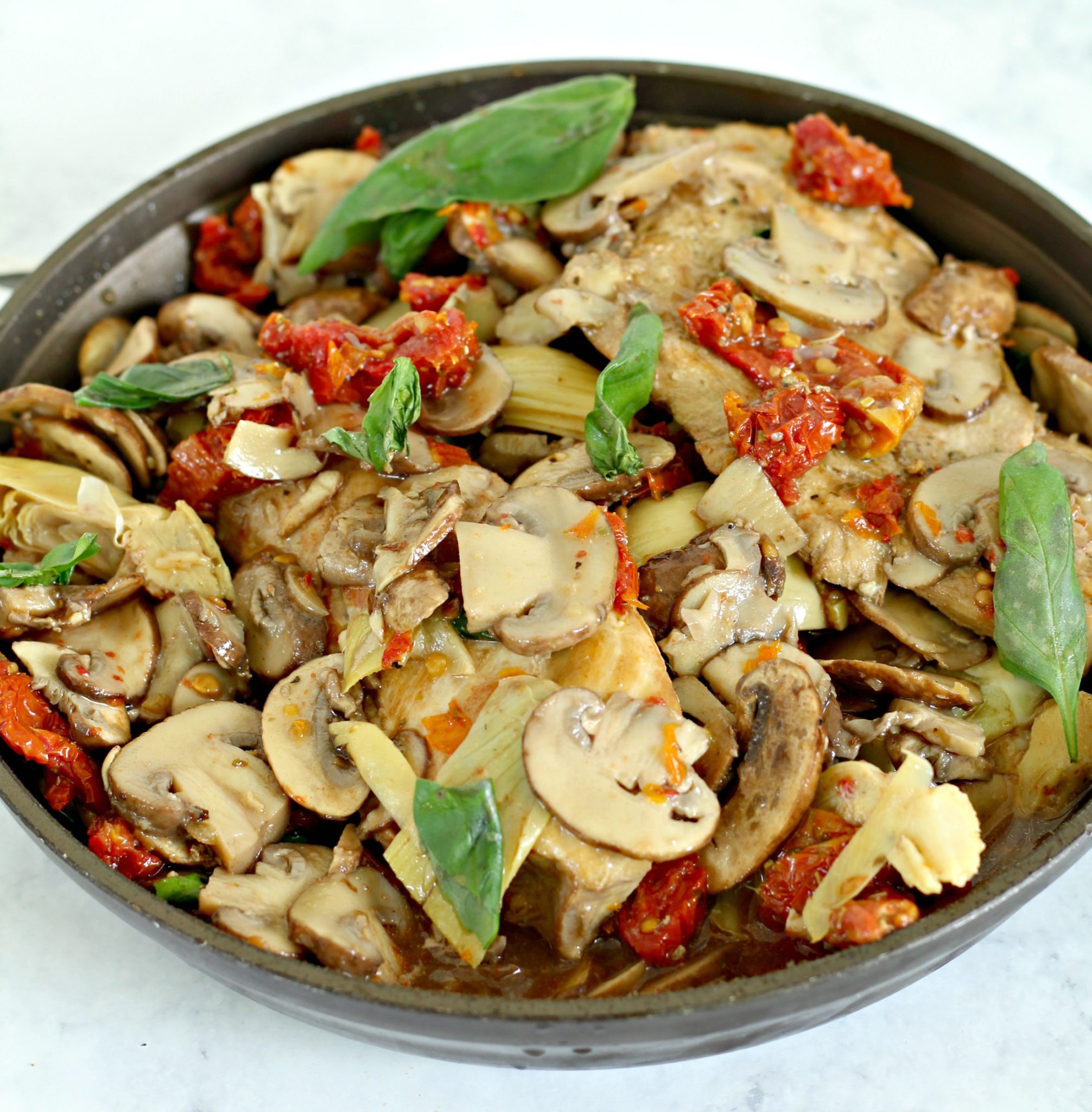
- “You need more protein in your diet to have big muscles and stay lean.”
While there is definite evidence supporting protein’s role in muscle repair, the message about the proper addition of protein in the diet is a little bit unclear- especially so in college age athletes who are looking to put on more muscle mass or obtain a “leaner” physique. When it comes to protein, more is not always better and in many cases, the specific kinds of protein plays a large role in how it affects your muscle growth and how it absorbs in the body. Protein synthesis is important for muscle growth, however there is a lot of controversy about how much you really need in order to see a significant difference or how big of an effect protein really has in addition to your workout routine. While many student athletes seem to think that they need something like 1 gram of protein for every pound of body weight- which is something I have heard so many times in the gym, a sports athlete really only needs a recommended 1.7grams of protein per every 1 kilogram of body weight. Fast digesting protein like hydrolyzed whey, a protein found in milk products, is optimal after training with heavy weights or resistance training. When it comes to “when” protein should be consumed, there also seems to be an idea floating around that you have down your protein shake as fast as you can as to not miss the so-called “anabolic window.”
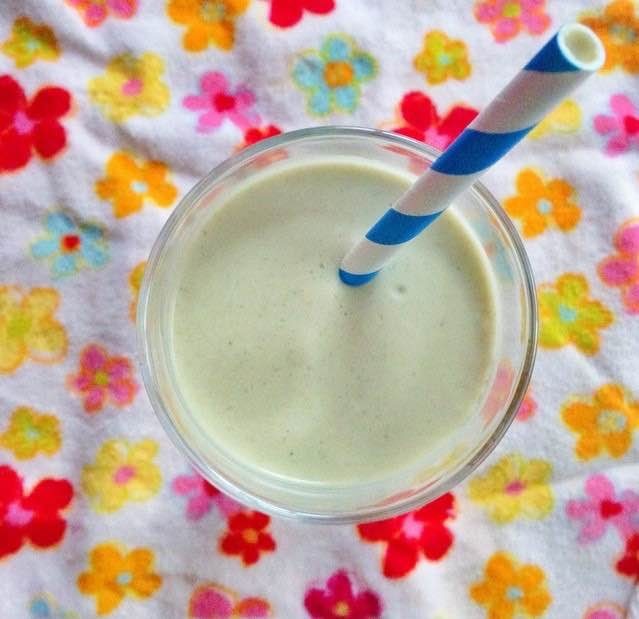
- “To lose fat, you need to cut out fat from your diet.”
It makes sense when you think about it, right? If you want less fat on your body…you just eat less fat right? Something I think many of us seem to forget when we think about the word “fat” is that we actually need fat to survive! Fat, like protein and carbohydrates, is a macro-nutrient, meaning your body needs them in higher amounts than other things like vitamins and minerals for example. According to the most recent Dietary Guidelines, the average person should consume 25-30% of the calories from fat. You can calculate this by understanding that 1 gram of fat equals 9 kilocalories. The amount of fat a person should consume varies greatly depending on factors like age, sex and activity level. Something else to keep in mind is that not all fat is created equal. Many sweet treats like cakes and pastries contain high amounts of saturated and trans fats (the unhealthy kind) and many other fat sources like your nuts, seeds, fish and plant-based oils contain poly or monounsaturated fats. This is not to say that you can’t enjoy some chips at a BBQ or slice of birthday cake at your work party. It just means that when it comes to consuming fat, aim for a higher quantity of healthy fat foods over processed foods. Studies show that those who eat more of these healthier fats lower their risk for heart disease.
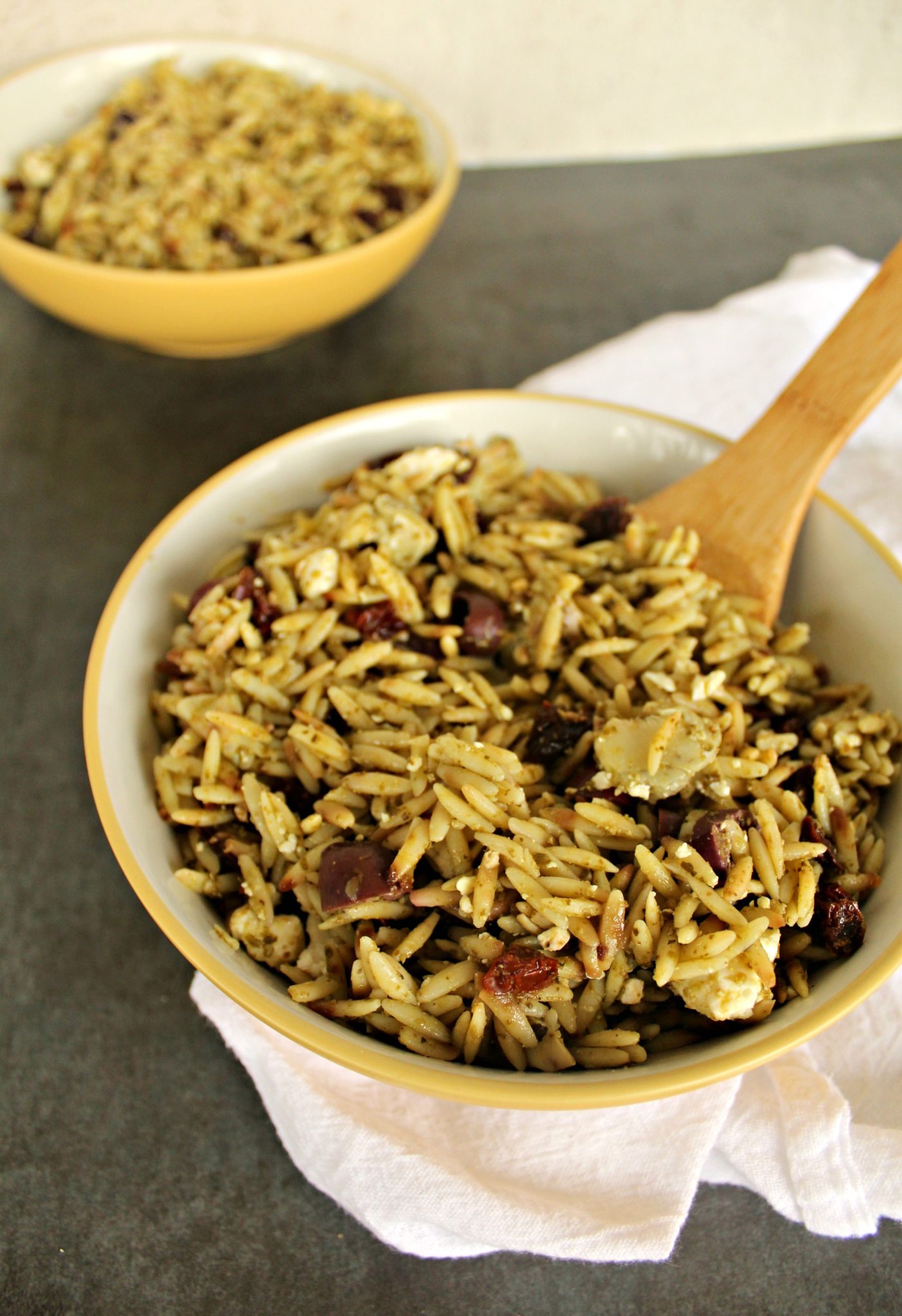
- “Carbs are Bad for you.”
Why do carbs get such a bad rep? I feel like the media likes to address problems or concerns with carbs more than anything. If you bring up how you feel about “carbs” to most college students, they will tell you that they are trying to “cut back” on them or “limit them” in their diets. Why? It can be safe to assume that most of the students did not just randomly decided to cut out carbs one day but rather that they heard somewhere from someone that these “carbs” are bad for you and that if you want to be healthy and fit, you need to eat less of them in your diet. I did a small study and asked a few people I knew what carbs actually were and many of them responses with things like breads, pasta and grains but I was surprised to find that many people did not recall that carbohydrates are actually extremely abundant in fruits, vegetables, milk, and yogurt. Carbohydrates are broken down into glucose (or sugar) and is your body’s primary source of energy! Ever wonder why you feel sluggish and tired in the morning if you skip breakfast? This is because your blood-glucose levels are too low and you can’t make enough energy to start your day off right. (One reason why eating breakfast is so important!) Simple carbohydrates are fast digesting and typically do not contain a high amount of fiber, which helps keep you full and your microbiome happy. Complex carbohydrates take longer for our bodies to digest because of those branched chain sugars, they contain more fiber than enriched products have, which help us feel fuller for longer. Something also interesting to note is that simple carbs are needed during long endurance-style workouts like long distance running! (Being a long-distance runner, Jess knows what’s up about consuming these carbs during her races!)
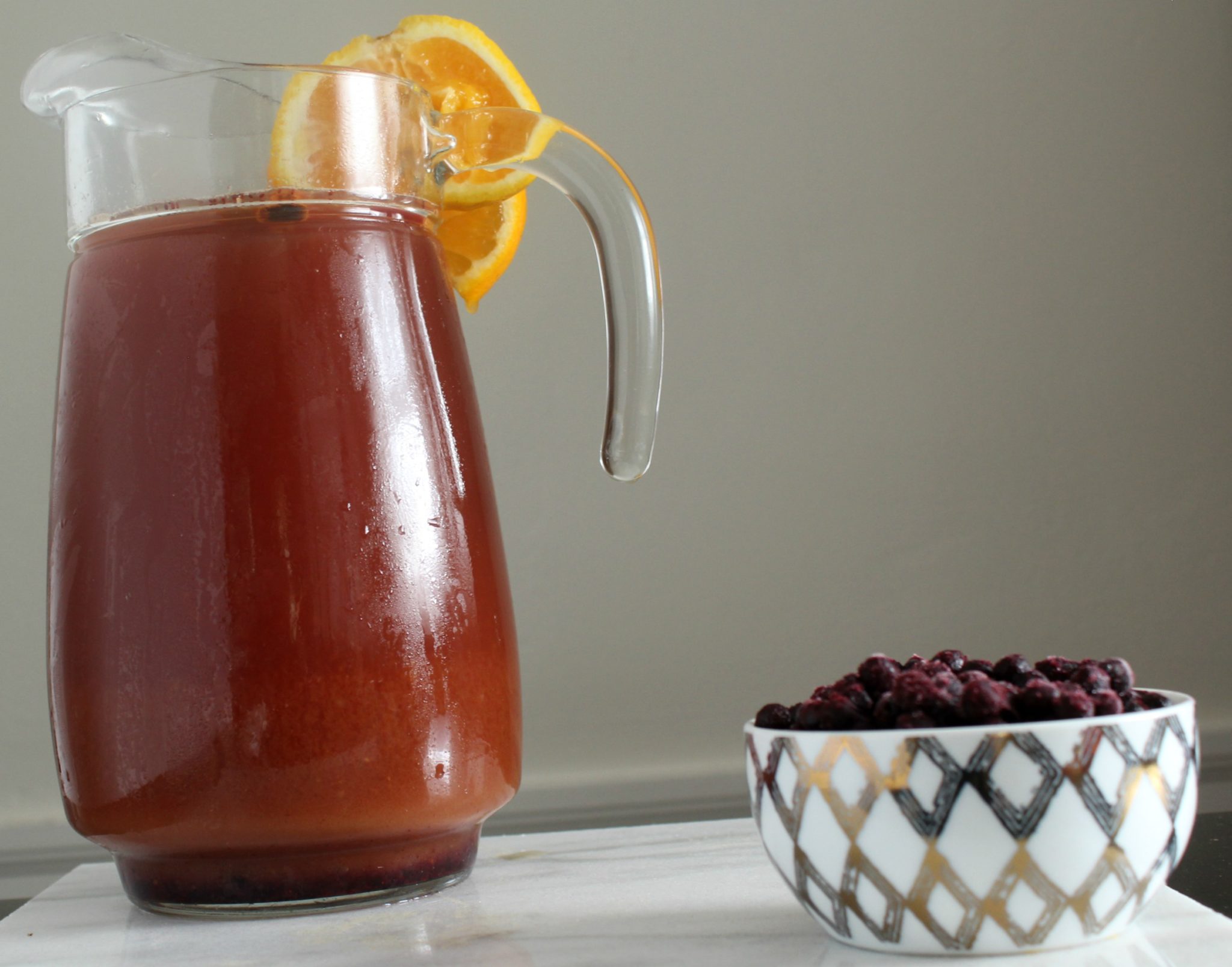
- “Detox teas help flush out toxins and help you lose weight.”
I cannot count the times I have seen an ad on my social media for these so-called “detox teas” that are designed to promote weight loss, improve fat-burning by speeding up your metabolism and reduce bloat by riding your body of any unwanted toxins after a night out on the town with maybe one too many drinks and orders of 50 cent hot wings. Unfortunately, while this may seem like a great “quick fix” to reduce a little unwanted belly bulge the problem with these types of products are scam. In many cases, these teas contain natural and or artificial diuretic-like components that cause more urination. Because these teas increase your water consumption, it makes sense that you are able to feel more refreshed and less bloated after a day or two because you are simply just urinating out excess sodium. When it comes to your body needing a “detox” your body already has a fancy and totally natural mechanism that does that for you! May I present to you, your liver. Your liver’s job is to get rid of any toxins from your body so you really don’t need any extra detox teas. When it comes to weight loss any time you are substituting drinks for meals you will see a (short term) weight loss, any claim to speed up the rate in which you lose weight is false.
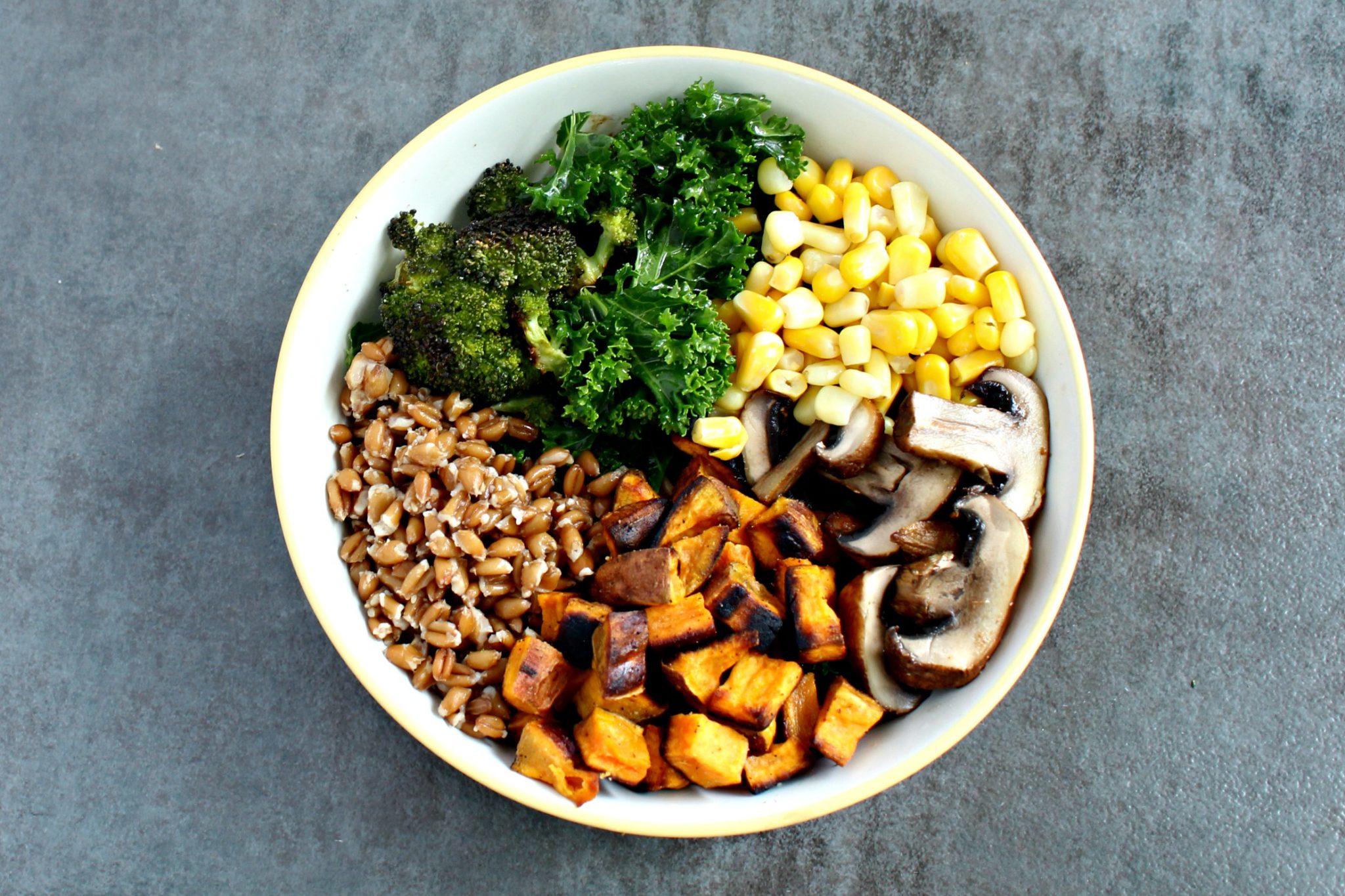
While the internet is a great tool to find more information about health and nutrition topics it can difficult to decipher what information is true versus what information is lacking in legitimate evidence. Always try to find more than one source to confirm accuracy of nutrition studies and you can always contact a Registered Dietitian. In fact, The U.S Department of Health and Human Services offers a helpful guide on their website about how to evaluate health information online which I found very helpful and easy to access! Hopefully I touched base on a few the most common nutrition misconceptions that you might have been wondering about as well. As an aspiring Dietitian, I feel that is extremely imperative that I stay up to date on nutritional science and health information so that I can distribute the right information to future clients. Nutrition can sometimes be a world of opinion as opposed to facts but when it comes down to it, always revert to researching studies that have been tested time and time again and are backed up with evidence to support any claims that you find questionable.
References:
“Celiac Disease: Fast Facts.” Beyond Celiac, Beyond Celiac, 2017, www.beyondceliac.org/celiac-disease/facts-and-figures/.
Denny, Sharon. “Carbohydrates – Part of a Healthful Diabetes Diet.” Www.eatright.org, 7 July 2015, www.eatright.org/resource/health/diseases-and-conditions/diabetes/carbohydrates-part-of-a-healthful-diabetes-diet.
“Dietary fats and cardiovascular disease: Putting together the pieces of a complicated puzzle.” Atherosclerosis, Elsevier, 27 Mar. 2014, www.sciencedirect.com/science/article/pii/S0021915014001622.
Evans, Linsay. “Good Complex Carbohydrates for Losing Weight.” Healthy Living, healthyliving.azcentral.com/good-complex-carbohydrates-losing-weight-2062.html.
Sass, Cynthia. “5 Things You Should Know About Detox Teas.” Health.com, 15 June 2015, www.health.com/celebrities/5-things-you-should-know-about-detox-teas.
Tipton, Kevin D., and Robert R. Wolfe. “Share.” International Journal of Sport Nutrition and Exercise Metabolism, journals.humankinetics.com/doi/abs/10.1123/ijsnem.11.1.109.
U.S. Department of Health and Human Services and U.S. Department of Agriculture. 2015 – 2020 Dietary Guidelines for Americans. 8th Edition. December 2015.


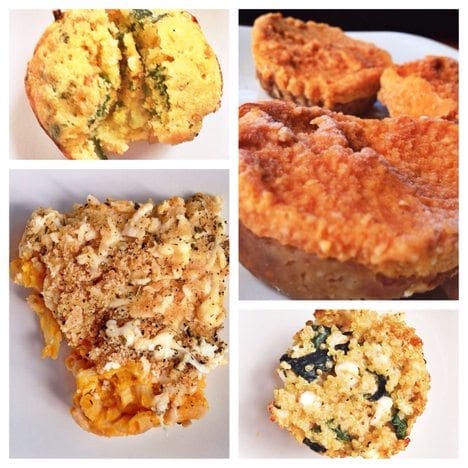
Thanks Courtney, this is good information. These misconceptions can definitely cause diet changes that aren’t necessarily good. Helping spread more information about them is very helpful, thanks for the post.
We are glad you enjoyed it Tommy!